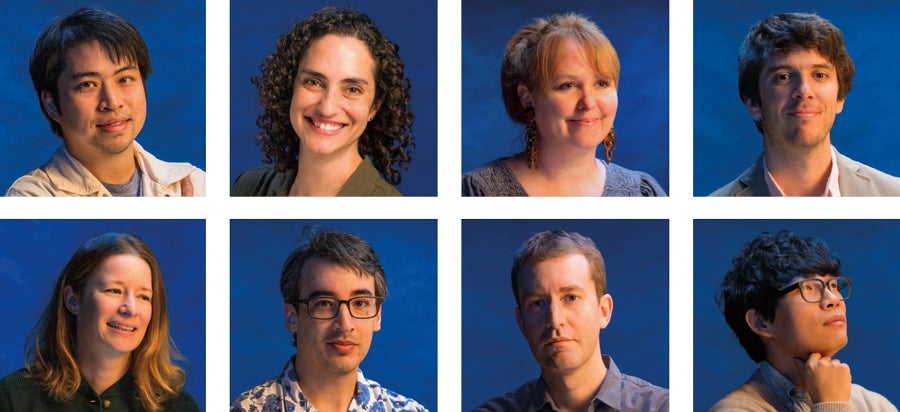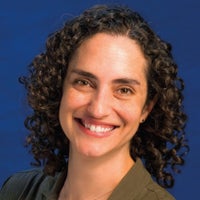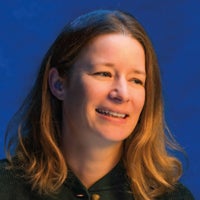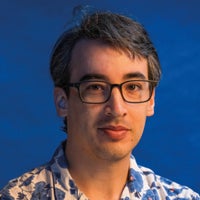Faculty Rising
Meet Rice’s newest National Science Foundation CAREER award recipients.

Spring 2025
By Jade Boyd, Silvia Cernea Clark,
Patrick Kurp and Marcy de Luna
The Faculty Early Career Development (CAREER) Program supports faculty at the assistant-professor or equivalent rank who will serve as academic role models and show promise in their ability to lead advances in the mission of their department or organizations. Only about 500 of the five-year awards are given annually across all academic disciplines. In 2024, eight of Rice’s outstanding young faculty members received these prestigious grants.

Nai-Hui Chia
Computer Science
Chia’s $788,220 NSF grant will help to develop a new theoretical framework to facilitate the development of efficient quantum algorithms for a range of problems in quantum physics and computer science as well as enhance the security of quantum cryptography.

Megan Reiter
Physics and Astronomy
The research funded by Reiter’s $951,446 NSF grant will investigate the influence of neighboring stars on the formation of planets — and could significantly impact our understanding of how planets are born.

Sylvia Dee
Earth, Environmental and Planetary Sciences
The $642,396 NSF grant supports Dee’s research on Earth’s hydrologic cycle using new tools to better understand past and present climate change and to improve climate-model projections of future water-related phenomena like droughts and floods.

Santiago Segarra
Electrical and Computer Engineering, Statistics
Segarra studies AI tools that are used in domains such as climate and traffic data. His $599,138 NSF grant aims “to boost the utility of AI by leveraging structural properties often found in real-world data,” Segarra says. “One of the many applications for this sort of research is climate prediction.”
 Amanda Marciel
Amanda Marciel
Chemical and Biomolecular Engineering
Marciel’s $670,406 NSF award supports her work to create synthetic networks that have a gel-like softness and are elastic for use in such applications as stretchable electronics and biomimetic tissues.

Mark Torres
Earth, Environmental and Planetary Sciences
Torres will use his $612,930 NSF grant to unlock new insights in river water chemistry, including its implications for addressing environmental concerns.

Konstantinos Mamouras
Computer Science
With his $547,555 NSF award, Mamouras aims to decentralize the Internet of Things, relieve network congestion and improve overall efficiency.
 Yonglong Xie
Yonglong Xie
Physics and Astronomy
The $888,555 NSF grant will support Xie’s research into harnessing magnons, quantum mechanical wavelike objects in magnetic materials, to create synthetic matter and develop next-generation quantum devices and sensors.
